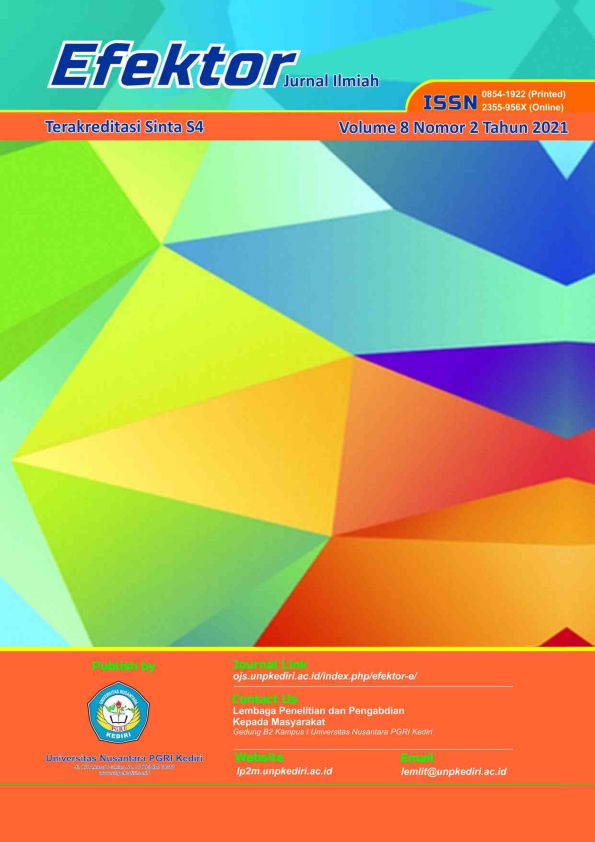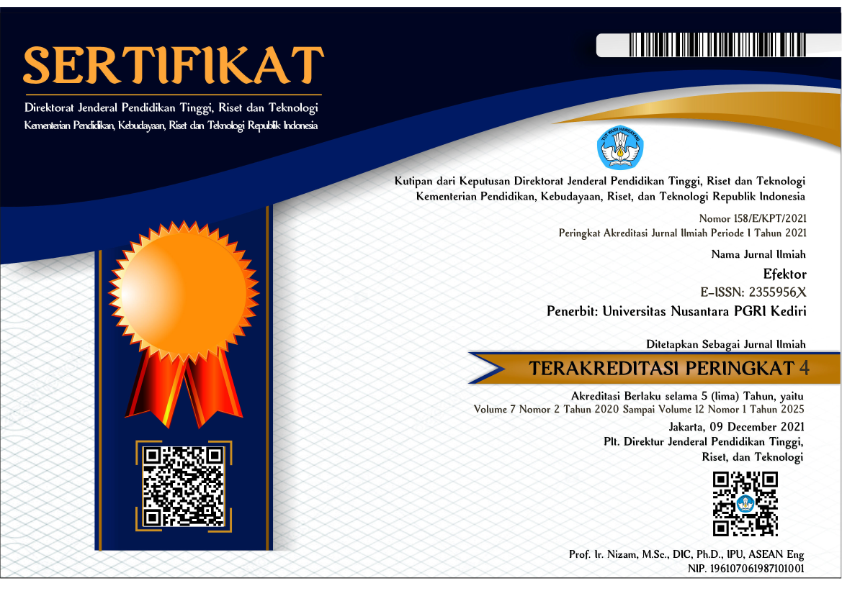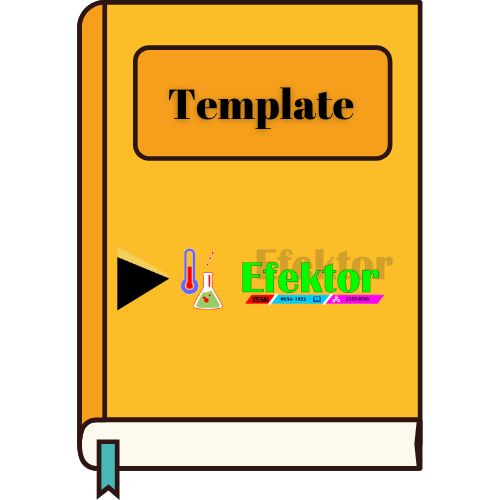Development of Local Culture-Based Style Urang Games in Stimulating Children's Interpersonal Intelligence
DOI:
https://doi.org/10.29407/e.v8i2.16216Keywords:
interpersonal intelligence, game style, early ageAbstract
The Changes gives both positive and negative effects on the individual, which also occurs in children where there are problems in interaction and communication because of the gadgets that are more widely used in learning. The pandemic era, where children play more gadgets makes interpersonal intelligence increasingly difficult to stimulate. The game namely “urang style” (snakes and ladders of culture) is a solution that can be used to stimulate and optimize interpersonal intelligence for children. The purpose of the research conducted by the author is to create a new play that can be used by PAUD educators in stimulating children's interpersonal intelligence. The subjects in this study were children aged 5-6 years. The research method used is Research and Development (R&D). Implementation of the development using the Barg & Gall model which was simplified into 4 stages including: (1) potential and problem analysis, (2) literature study, (3) product design, (4) design validation. Instruments in data collection related to the observation used. The style game has several advantages including: (1) interesting, (2) interactive, (3) economical, (4) educational. The results of the validity test came from the validator, who concluded that the game of “urang style” was suitable for use and obtained a score of 0.05. The implementation of these results will be the basis if the next stage will be carried out
References
Anggraini, R. (2017). Upaya meningkatkan kecerdasan interpersonal anak melalui metode bermain peran pada anak kelompok B TK Mutiara Bangsaku Langkapura Bandar Lampung. Universitas Islam Negeri Raden Intan Lampung.
Anggraini, Y. (2018). PENGEMBANGAN KECERDASAN INTERPERSONAL ANAK USIA DINI DI RA MELATI TANJUNG KURUNG LAMA KASUI WAY KANAN. Universitas Islam Negeri Raden Intan Lampung.
Ardini, pupung puspa, & Lestariningrum, A. (2018). BERMAIN & PERMAINAN ANAK USIA DINI (I). CV. Adjie Media Nusantara.
Ekayati, I. A. S. (2015). Pengaruh permainan tradisional “gobag sodor” terhadap kecerdasan intrapersonal dan interpersonal pada anak usia dini. Didaktika, 13(3), 1–10.
Febriana, N. D. (2015). Pembelajaran AKtif, Kreatif, Efektif dan Menyenangkan.
Haryati, S. (2012). Research and Development (R&D) Sebagai Salah Satu Model Penelitian dalam Bidang Pendidikan. Research And Development (R&D) Sebagai Salah Satu Model Penelitian Dalam Bidang Pendidikan, 37(1), 11–26.
Hendryadi. (2014). CONTENT VALIDITY (VALIDITAS ISI). Teorionline Personal Paper, 01(01), 1–5.
Istiqomah, S. (2018). PENERAPAN METODE BERMAIN MELALUI PERMAINAN ULAR TANGGA DALAM MENGEMBANGKAN KOGNITIF ANAK USIA 5-6 TAHUN DI PAUD SRIWIJAYA LAMPUNG TIMUR TP. 2017/2018.
Jumiatin, D., Windarsih, C. A., & Sumitra, A. (2020). Penerapan Metode Holistik Integratif Dalam Meningkatkan Kecerdasan Interpersonal Anak Usia Dini di Purwakarta. Jurnal Tunas Siliwangi, 6(2), 1–8.
Lestariningrum, A., & Handini, M. C. (2017). Analisis Pengembangan Kecerdasan Logis Matematis Anak Usia 5-6 Tahun Menggunakan Permainan Tradisional. JPUD - Jurnal Pendidikan Usia Dini, 11(2), 215–225. https://doi.org/10.21009/jpud.112.02
Lestariningrum, A., & Yulianto, D. (2016). Strategy for Creative Learning By Using Traditional Games Based Multicultural in Early Childhood Education. Proceedings International Seminar FoE (Faculty of Education, 1, 66.
Nasution, R. K., & Siregar, N. I. (2017). Pengaruh Permainan Tradisional Pecah Piring Dan Ular Naga Terhadap Kecerdasan Interpersonal Anak Usia Dini. Analitika, 5(1), 18–25.
http://www.ojs.uma.ac.id/index.php/analitika/article/view/822/784
Ningsih, S. (2016). Mengembangkan Kecerdasan Interpesonal Anak Usia Dini Melalui Permainan Tradisional (Studi Kasus di TK Al-Akhyar Purwakarta Kelompok B). Tunas Siliwangi.
Pahrul, Y., Hartati, S., & Meilani, S. M. (2019). Peningkatan Kecerdasan Interpersonal melalui Kegiatan Menggambar pada Anak Usia Dini. Jurnal Obsesi : Jurnal Pendidikan Anak Usia Dini, 3(2), 461. https://doi.org/10.31004/obsesi.v3i2.186
Saharuddin, Prihatmono, M. W., & Karmila. (2020). ANALISIS USABILITY GOOGLE-CLASSRROOM MENGGUNAKAN METODE SKALA LIKERT Saharuddin1),. Jurnal Informatika Progres, 12(2), 1–9.
Saleh, S. M. (2015). Implementasi Metode Bermain Peran Untuk Meningkatkan Kecerdasan Interpersonal Anak Usia 5-6 Tahun Di Tk Barunawati the Implementation of Role Playing Method To Improve Interpersonal Intelligence of Children Ag. Jurnal Pendidikan Dan Pemberdayaan Masyarakat, 2(1), 85–93.
Suarca, K., Soetjiningsih, S., & Ardjana, I. E. (2016). Kecerdasan Majemuk pada Anak. Sari Pediatri. https://doi.org/10.14238/sp7.2.2005.85-92
Sujiono, Y. N., & Sujiono, B. (2010). BERMAIN KREATIF BERBASIS KECERDASAN JAMAK (Y. N. Sujiono & B. Sujiono (eds.); I). PT. Indeks.
Suyanto, S. (2005). Dasar-dasar Pendidikan Anak Usia Dini. Pendidikan.
Wartini, N. (2019). UPAYA MENINGKATKAN RASA CINTA TANAH AIR MELALUI PERMAINAN ULAR TANGGA DI KELOMPOK BERMAIN STRAWBERRY. Jurnal Ilmiah Kajian Ilmu Anak Dan Media Informasi PUD, 3359(1), 63–72.
Widiastuti, S. (2015). Pembelajaran Proyek Berbasis Budaya Lokal untuk Menstimulasi Kecerdasan Majemuk Anak Usia Dini. Jurnal Pendidikan Anak, 1(1), 59–71. https://doi.org/10.21831/jpa.v1i1.2907
Downloads
Published
Issue
Section
License
Authors who publish with this journal agree to the following terms:
- Copyright on any article is retained by the author(s).
- The author grants the journal, the right of first publication with the work simultaneously licensed under a Creative Commons Attribution License that allows others to share the work with an acknowledgment of the work’s authorship and initial publication in this journal.
- Authors are able to enter into separate, additional contractual arrangements for the non-exclusive distribution of the journal’s published version of the work (e.g., post it to an institutional repository or publish it in a book), with an acknowledgment of its initial publication in this journal.
- Authors are permitted and encouraged to post their work online (e.g., in institutional repositories or on their website) prior to and during the submission process, as it can lead to productive exchanges, as well as earlier and greater citation of published work.
- The article and any associated published material is distributed under the Creative Commons Attribution-ShareAlike 4.0 International License













